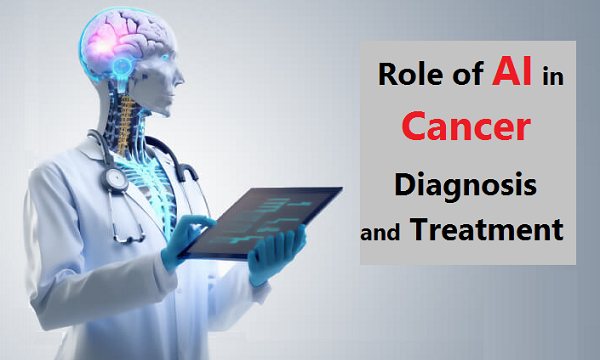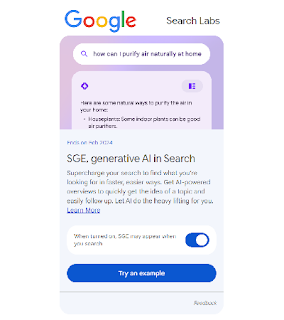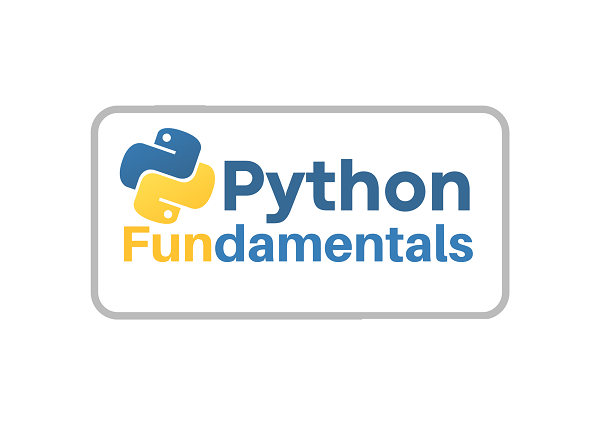The Role of AI in Cancer Diagnosis and Treatment: How Artificial Intelligence is Changing the Game
Discover the latest advancements in cancer care! Our new article explores the role of AI in cancer diagnosis and treatment, including its potential opportunities and limitations.
The article explores the role of AI in cancer diagnosis and treatment, including its latest advancements, potential opportunities, and limitations. It discusses how AI is helping clinicians to accurately identify and treat cancer, as well as its potential to revolutionize cancer care. Additionally, it examines the challenges that AI faces in terms of data quality and ethical considerations.
Cancer is one of the leading causes of death globally, and
early detection is critical for effective treatment. Artificial intelligence (AI) is increasingly being used in cancer diagnosis and treatment,
revolutionizing the field with its ability to analyze vast amounts of data and
improve accuracy.
In this blog post, we will explore the role of AI in cancer
diagnosis and treatment, including its benefits, limitations, and potential
future applications.
AI in Cancer
Diagnosis
One of the most promising applications of AI in cancer
diagnosis is in medical imaging. Medical images, such as X-rays, CT scans, and
MRI scans, are often used to detect cancer and monitor its progression.
However, interpreting these images can be challenging and time-consuming for human
radiologists.
AI can help by analyzing medical images and identifying
patterns that may indicate the presence of cancer. Machine learning algorithms
can be trained on large datasets of medical images to recognize patterns and
make predictions with high accuracy. This can lead to faster and more accurate
cancer diagnoses, which can ultimately save lives.
One example of AI in cancer diagnosis is the use of deep
learning algorithms to detect breast cancer in mammograms. A study published in
the journal Nature found that an AI system was able to identify breast cancer
in mammograms with a similar level of accuracy to human radiologists. Artificial Intelligence (AI) is revolutionizing the field of cancer diagnosis, bringing
about significant improvements in accuracy, speed, and efficiency. Traditional
methods of cancer diagnosis involve labor-intensive processes, which are
time-consuming, expensive, and often prone to errors. With AI, the process
becomes more efficient, faster, and more accurate.
AI-powered diagnostic tools are based on deep learning
algorithms that are trained on vast amounts of data, including medical images,
patient histories, and genetic information. By analyzing this data, these
algorithms can identify subtle patterns and abnormalities that may not be visible
to the human eye. The accuracy of these tools is continually improving, and
they are becoming more adept at detecting cancers at earlier stages, which can
greatly increase the chances of successful treatment.
One of the most significant advantages of AI in cancer
diagnosis is its ability to analyze vast amounts of data quickly and
accurately. For example, an AI system can analyze thousands of medical images
in a matter of seconds, whereas a human radiologist may take hours or even days
to review the same images. This means that AI can identify cancerous cells or
tumors much earlier, increasing the chances of successful treatment.
AI can also help to reduce the number of unnecessary
biopsies and other invasive procedures. By accurately identifying the location
and nature of the tumor, AI can determine whether a biopsy is necessary and, if
so, which tissue samples should be taken. This can reduce the risks associated
with invasive procedures and reduce healthcare costs by avoiding unnecessary
procedures.
In addition to improving accuracy and efficiency, AI can
also help to overcome the shortage of trained medical professionals in some
regions. With AI, even medical professionals in remote or underdeveloped areas
can access cutting-edge diagnostic tools and techniques, ensuring that patients
receive the best possible care.
Despite these benefits, there are still some limitations to
AI in cancer diagnosis. For instance, AI systems are only as good as the data
they are trained on. If the data is biased or incomplete, the system's accuracy
may be compromised. Furthermore, AI cannot replace human expertise and
judgment, and it is essential that medical professionals work in tandem with AI
tools to ensure the best possible outcomes for patients.
AI is transforming cancer diagnosis, offering significant
benefits in terms of accuracy, speed, and efficiency. By analyzing vast amounts
of data quickly and accurately, AI can detect cancer at earlier stages, reduce
the number of unnecessary invasive procedures, and help to overcome the
shortage of trained medical professionals in some regions. However, it is
important to recognize the limitations of AI and to use these systems in
conjunction with human expertise and judgment.
AI in Cancer
Treatment
Cancer is a complex disease that requires an equally complex
treatment approach. The traditional cancer treatment methods such as
chemotherapy, radiation therapy, and surgery have been used for decades. While
these treatments are effective in many cases, they can cause unwanted side
effects and may not work for all patients.
Artificial intelligence (AI) is also being used in cancer treatment
to develop more personalized treatment plans and improve patient outcomes. By
analyzing a patient's genetic information, medical history, and other data, AI
algorithms can help identify the most effective treatment options for each
individual.
One example of AI in cancer treatment is the use of
predictive modeling algorithms to guide radiation therapy. These algorithms use
machine learning to analyze medical images and predict the outcome of different
treatment plans. This can help doctors choose the most effective treatment plan
for each patient, while minimizing the risk of side effects.
AI is also being used to develop new cancer drugs. Machine
learning algorithms can analyze large datasets of genetic and medical
information to identify potential targets for new drugs. This can accelerate
the drug discovery process and lead to more effective treatments for cancer.
One way that AI is being used in cancer treatment is through
the development of precision medicine. Precision medicine involves the use of a
patient's genetic and molecular information to create personalized treatment plans.
AI algorithms can analyze this information and make treatment recommendations
based on the patient's unique profile.
Another way that AI is being used in cancer treatment is
through the development of predictive models. These models can analyze large
amounts of patient data, including electronic health records, imaging studies,
and genomic data, to predict a patient's response to treatment. This
information can help doctors choose the most effective treatment for each
patient, increasing the chances of a positive outcome.
AI is also being used in cancer treatment to help doctors
monitor patients during and after treatment. This includes the development of
algorithms that can analyze imaging studies to detect changes in tumors over
time. This information can help doctors determine whether a patient's treatment
is working or whether additional treatment is needed.
While AI has the potential to revolutionize cancer
treatment, it is important to recognize that these systems are not perfect.
There are limitations to what AI can do, and it is important to use these
systems in conjunction with human expertise and judgment. Nevertheless, AI has
the potential to improve patient outcomes, reduce side effects, and ultimately
save lives.
Limitations
of AI in Cancer Diagnosis and Treatment
Artificial intelligence (AI) has shown tremendous potential
in revolutionizing the field of cancer diagnosis and treatment. However, it is
important to recognize that AI is not a silver bullet and has its own limitations.
One of the limitations of AI in cancer diagnosis is that it
relies heavily on data. While AI algorithms can analyze large amounts of data
to identify patterns and anomalies, they require large, diverse, and
high-quality datasets to perform effectively. If the data used to train the
algorithm is incomplete, biased, or unrepresentative, the AI system may
generate inaccurate results.
Another limitation of AI in cancer diagnosis is that it
cannot replace the human judgment and expertise of trained medical
professionals. While AI can identify potential cancerous areas in medical
images and scans, it cannot make a final diagnosis or decide on a treatment
plan without the involvement of a trained medical professional.
Similarly, in cancer treatment, AI can assist in developing
treatment plans by analyzing patient data and predicting the effectiveness of
different treatment options. However, it cannot replace the expertise and
experience of oncologists who must make decisions based on a patient's overall
health, medical history, and other factors.
Additionally, there are ethical concerns around the use of
AI in cancer diagnosis and treatment. For example, there is a risk that AI
could perpetuate existing biases in healthcare by relying on historical data
that may reflect systemic inequalities in access to care.
While AI has great potential in cancer diagnosis and
treatment, it is important to recognize its limitations and use it in
conjunction with human expertise. By leveraging the strengths of AI and human
judgment, we can work towards more accurate and effective cancer diagnosis and
treatment.
Future Applications
of AI in Cancer Diagnosis and Treatment
Artificial intelligence (AI) is rapidly advancing the field
of cancer diagnosis and treatment, and there is great potential for future
applications of this technology.
One promising area of development is using AI to predict a
patient's response to different cancer treatments. By analyzing large amounts
of patient data, including genetic information and treatment histories, AI
algorithms can generate personalized treatment plans that are tailored to the
individual patient's needs.
Another potential application of AI in cancer treatment is
improving the accuracy and precision of radiation therapy. AI systems can
analyze patient data and help physicians identify the optimal radiation dose
and target area for each patient, reducing the risk of damaging healthy tissue
and improving treatment outcomes.
In addition to diagnosis and treatment, AI is also being
explored for its potential in cancer prevention. By analyzing large amounts of
data on risk factors and lifestyle habits, AI algorithms can help identify
individuals who are at high risk of developing cancer and recommend
preventative measures, such as lifestyle changes or increased screening.
However, it is important to recognize that AI is not a
perfect solution and has its limitations. One major challenge is ensuring the
accuracy and reliability of the data used to train AI algorithms. If the data
is biased or incomplete, the AI system may produce inaccurate or misleading
results.
Another challenge is ensuring that AI is used in a way that
complements human expertise and judgment, rather than replacing it. While AI
can analyze large amounts of data quickly and accurately, it cannot replace the
insight and experience of a trained physician or healthcare professional.
Despite these challenges, the potential for AI in cancer
diagnosis and treatment is vast, and ongoing research and development in this
field is likely to lead to even more innovative and effective applications of
this technology in the years to come.
Conclusion
AI is rapidly transforming the field of cancer diagnosis and treatment, offering new opportunities to improve patient outcomes and save lives. By analyzing vast amounts of data and identifying patterns that may be difficult for humans to detect, AI has the potential to revolutionize cancer diagnosis and treatment. However, it is important to recognize the limitations of AI and to use these systems in conjunction with human expertise and judgment. As powerful as AI is, it cannot replace the intuition, empathy, and ethical considerations of healthcare professionals.




Comments
Post a Comment